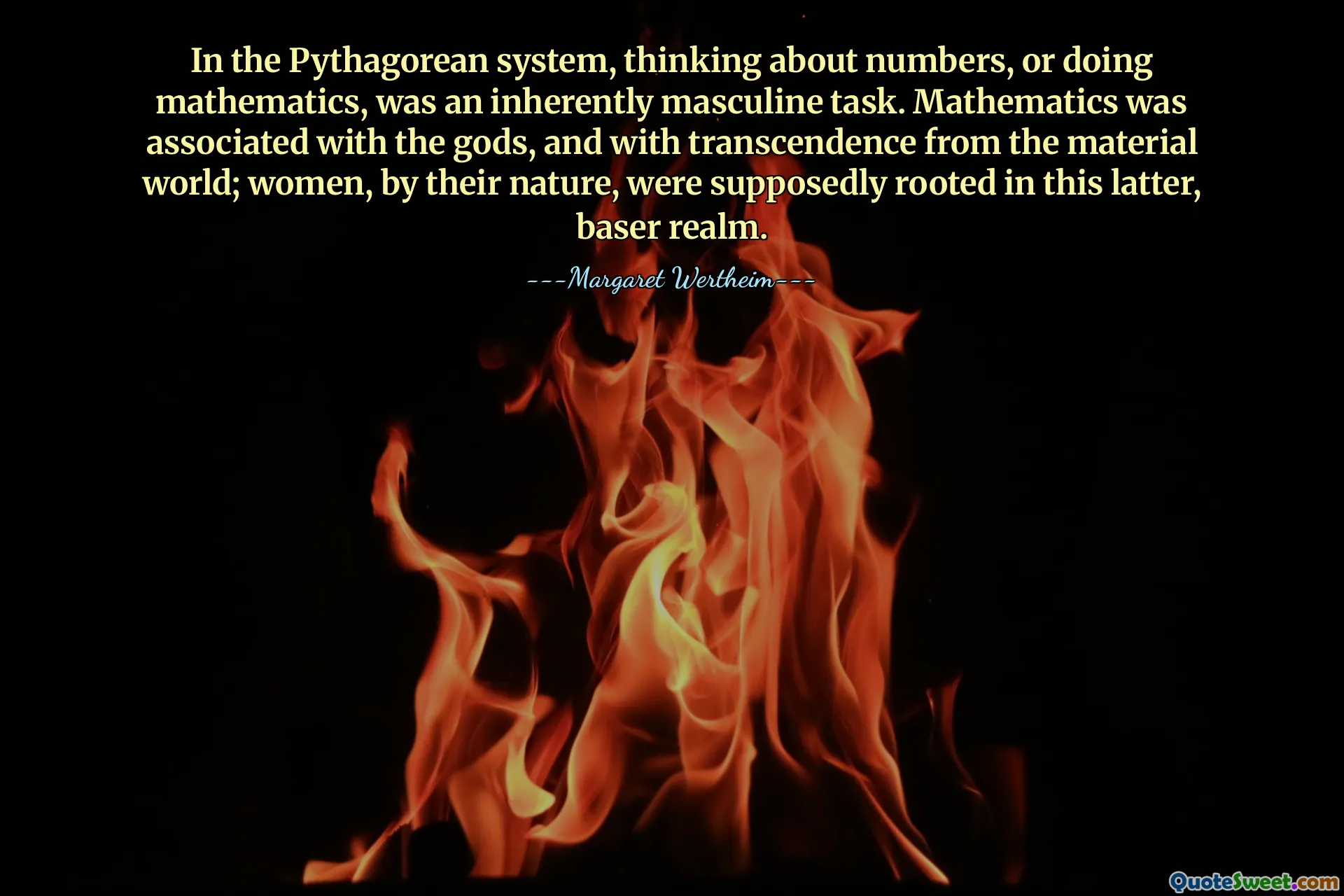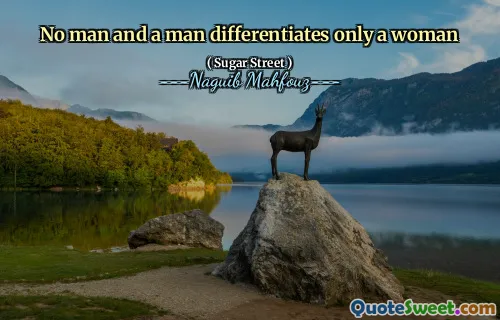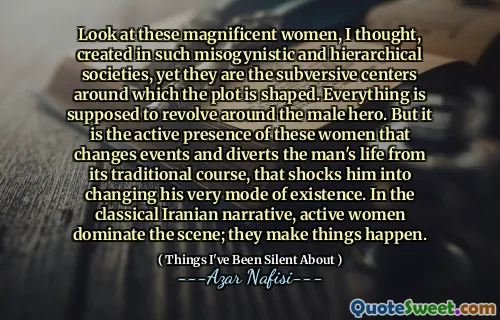
In the Pythagorean system, thinking about numbers, or doing mathematics, was an inherently masculine task. Mathematics was associated with the gods, and with transcendence from the material world; women, by their nature, were supposedly rooted in this latter, baser realm.
This quote highlights a significant historical perspective on gender and intellectual pursuits, particularly within early philosophical traditions like the Pythagorean system. The association of mathematics with masculinity and divinity illustrates how deeply cultural constructs have influenced our understanding of knowledge and its accessibility. It reminds us that such distinctions were not based on inherent intellectual capacities but were cultural fabrications meant to justify societal roles and hierarchies.
Reflecting on this, it's striking to consider the arbitrary nature of these biases and how they have suppressed women's contributions to fields like mathematics and science throughout history. The very idea that mathematics is a matter of transcendence and masculinity strips away the possibility of inclusive enlightenment and denies the universality of intellectual endeavor. Today, we understand that mathematical ability and passion are not gendered traits but human ones, accessible to all.
The historical relegation of women to the ‘material world’ and the denial of their intellectual agency serve as a powerful reminder of the need to challenge enduring stereotypes. Efforts to dismantle these outdated views remain crucial to realizing true equality in education and professional fields. Ultimately, this quote encourages us to question the foundations of biases about gender and intellect and inspires ongoing reflection about how history shapes, for better or worse, our collective assumptions and identity.











